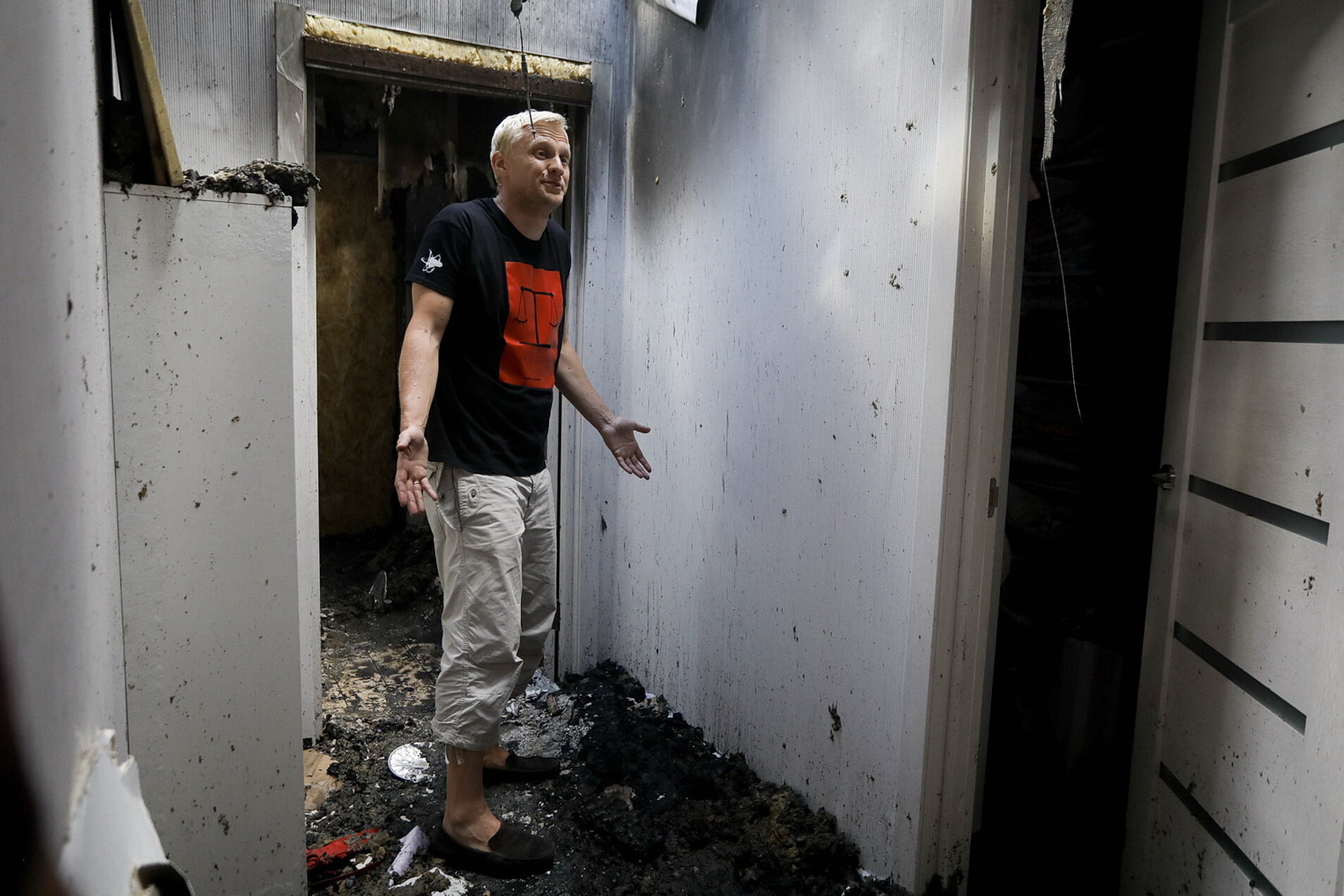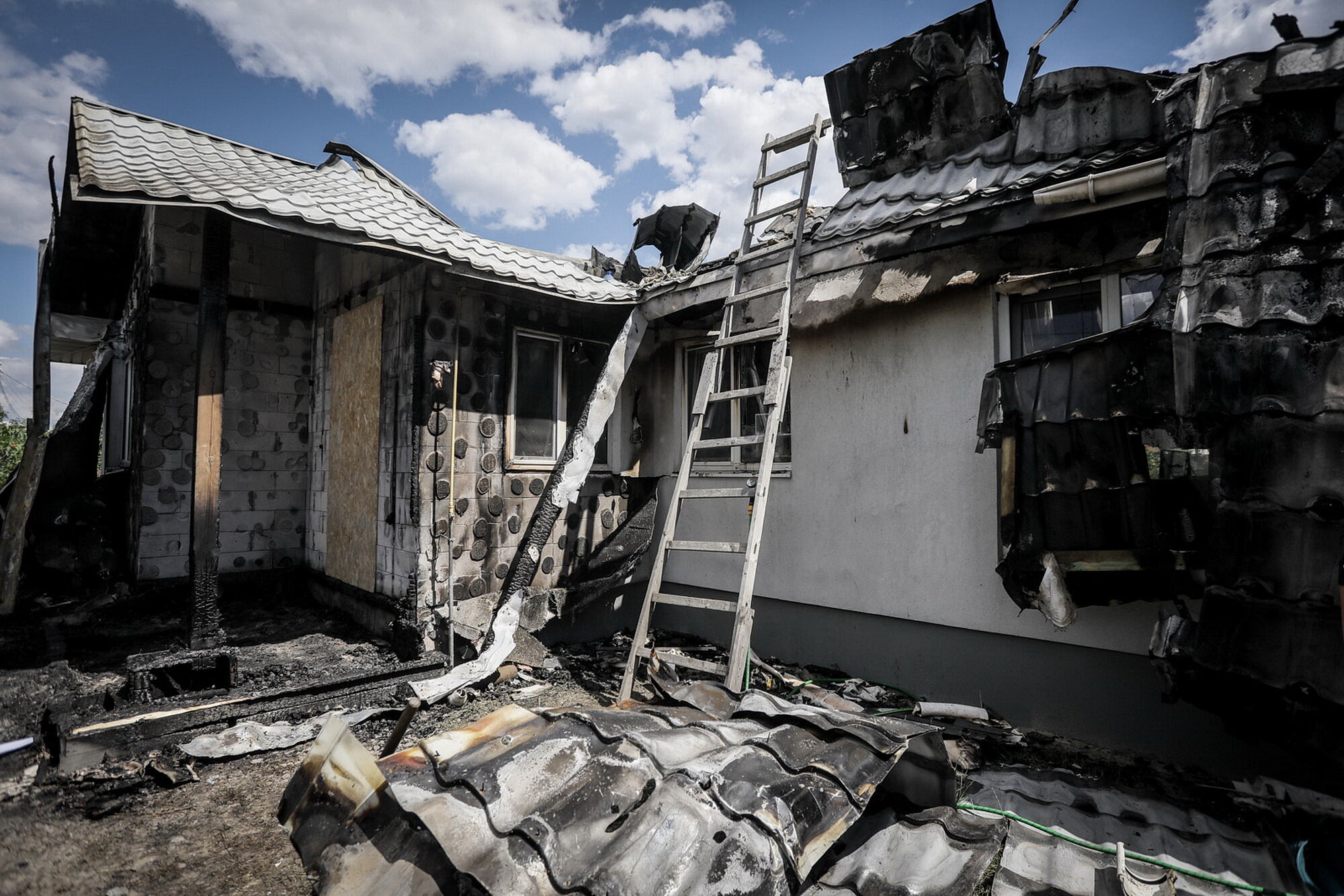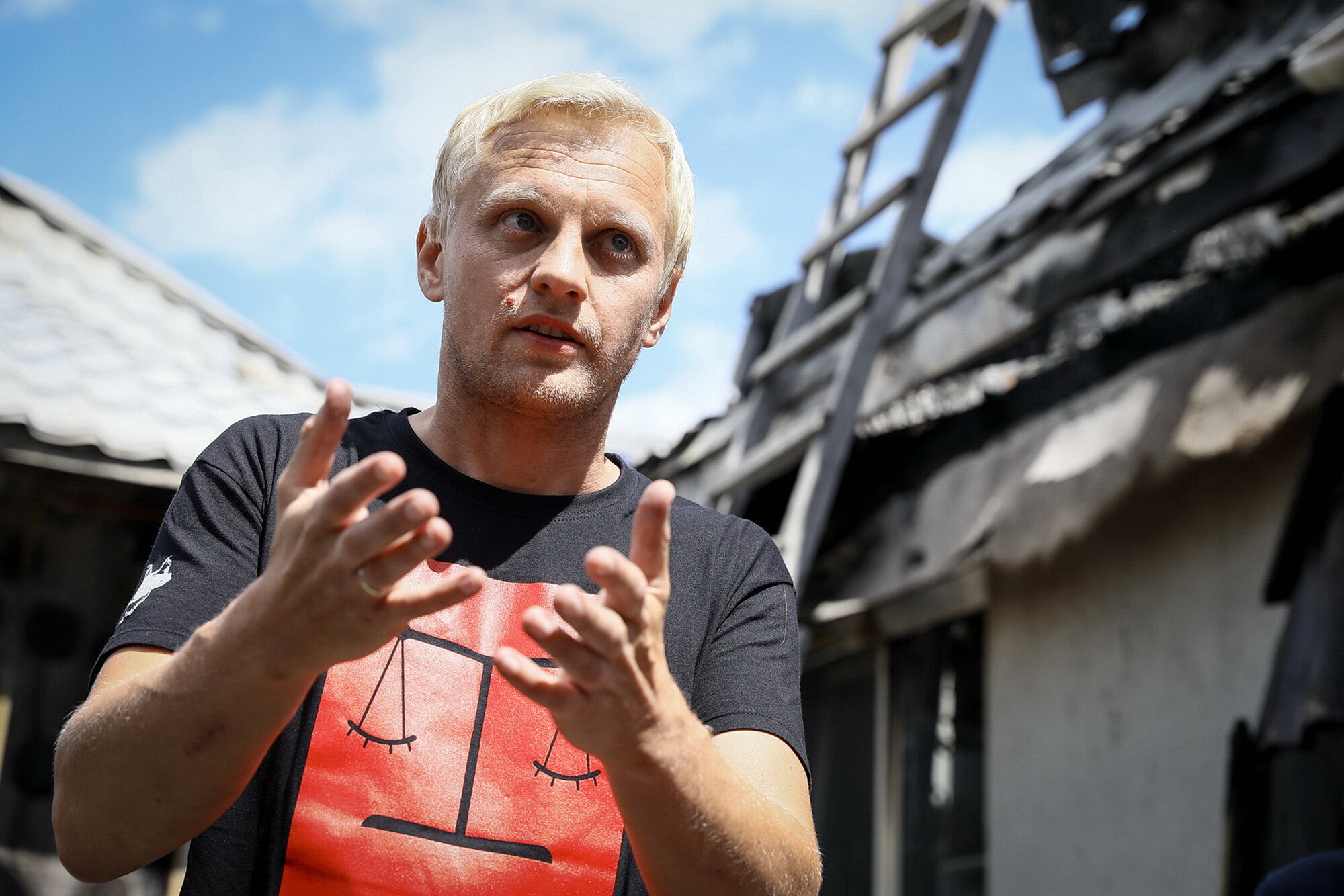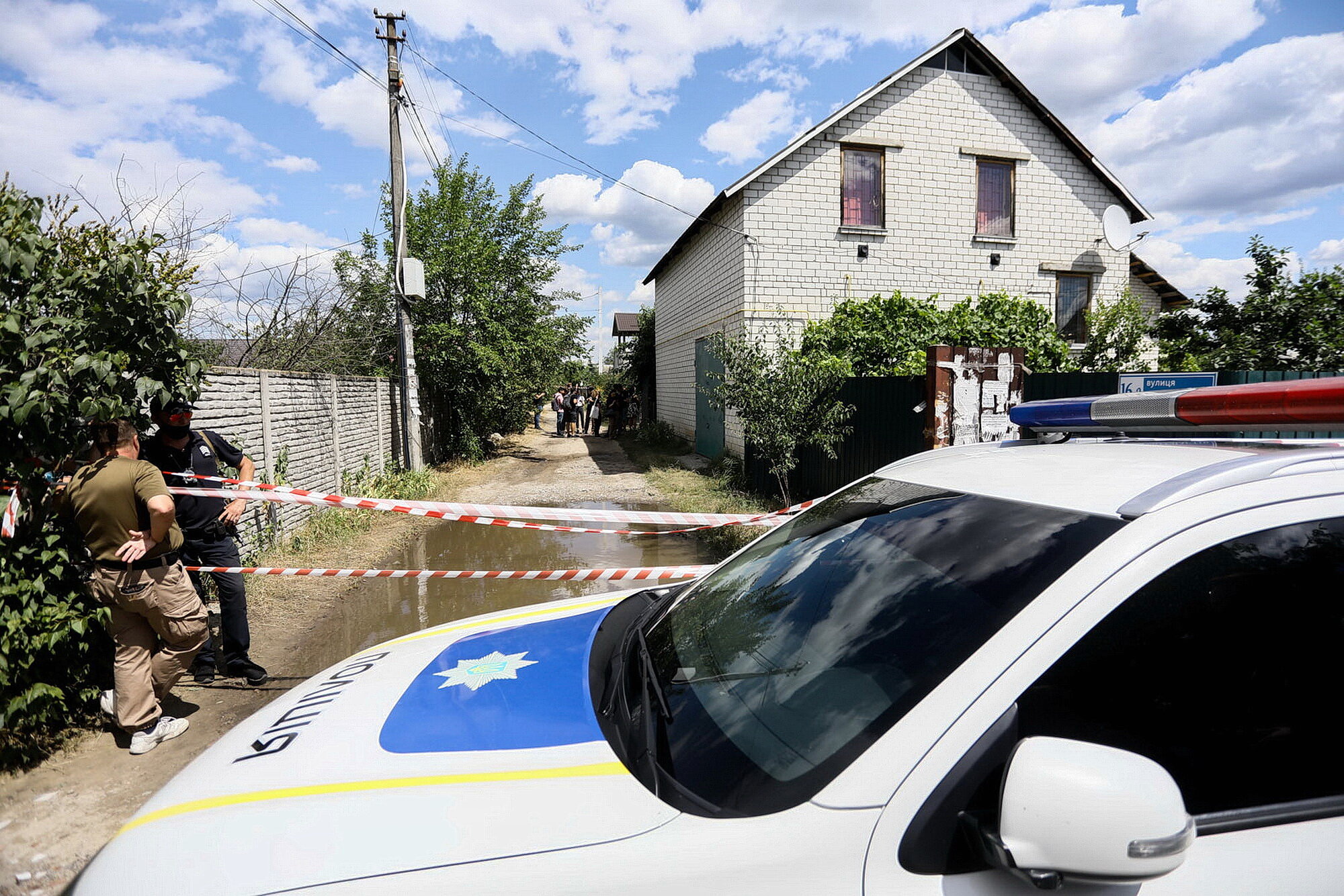One of Ukraine’s top anti-corruption activists Vitaliy Shabunin, who serves as the head of the Anti-Corruption Action Center’s executive board, said on July 23 that his house in Kyiv burned down overnight. He suspects that the fire was the result of arson as retribution for his activism.
No one was injured in the fire. Only Shabunin’s parents were at the house, which is located in the southeastern outskirts of Kyiv. They were able to escape uninjured.
Shabunin said that his neighbors heard an explosion before the fire and saw when the entrance burst into flames. He ruled out the possibility of gas leakage, saying that the gas meter and pipes in the house were checked just two weeks before the fire.
Shabunin is famous for his activism aimed at top-level corruption in Ukraine. He holds public rallies, speaks against corruption in Ukrainian and international press, and lobbies for anti-corruption legislation and the recovery of ill-gained assets.
“As a Christian, I bless the perpetrators of (the attack) and those who ordered it,” wrote Shabunin. “I thank them for the motivation to work even harder.”
The police are treating the fire as arson.
During the meeting with the press in front of his burned house, Shabunin said that the attack was possible because President Volodymyr Zelensky “doesn’t take any serious steps to protect activists,” leaving aggression against them unpunished.
“These are the consequences of his silence and inaction,” said Shabunin.
When asked whom he suspects ordered the attack, Shabunin said it might be one of the top officials and business people criticized by the activist and his colleagues at the Anti-Corruption Action Center.
“We have a long list of ‘friends’ — Oleg Bakhmatyuk, Ihor Kolomoisky, Arsen Avakov…,” he said.
Bakhmatyuk is a Ukrainian agricultural tycoon, who is a suspect in a large-scale embezzlement case. When asked to comment on Shabunin’s allegations, Bakhmatyuk’s aide Oksana Melnyk said her boss didn’t want to “get into this mud.”
Ukrainian oligarch Kolomoisky, whom the activists targeted for his attempts to overturn the nationalization of the PrivatBank, denied he had anything to do with the attack on Shabunin. The Kyiv Post is reaching out to Interior Minister Avakov, whom the activists investigated regarding his purchase of a luxury villa in Italy. Avakov is yet to comment on the allegations.
Daria Kaleniuk, executive director of the Anti-Corruption Action Center, said that the police found unidentified objects near the entrance of the burned house that she alleged were the remains of the explosive that started the fire. At the same time, she said she didn’t have faith in the official investigation.
“We don’t trust investigation performed by police,” said Kaleniuk. “For many years, we have been systematically pressured by the law enforcement agencies and corrupt officials.”
Zelensky reacted to the incident saying that every attack like that “casts a shadow over the reputation of our state, and especially on law enforcement agencies.”
He expects that police will quickly and professionally investigate the case. “Regardless of views, position, or public activity, everyone in our country has an absolute right on personal inviolability and inviolability of home,” Zelensky wrote on Facebook.
It’s not the first time when Shabunin’s house is in the news.
In 2016-2018, during the rule of ex-President Petro Poroshenko, Shabunin faced an intense smear campaign against him, which centered around accusations of stealing some donor funds. The house was shown as “evidence” of Shabunin’s dishonesty, prompting him to deny all accusations and publish a detailed declaration of assets and income.
The house has been the site of protests, which later turned out to have been overseen by an employee of the State Security Service of Ukraine, according to Ukrainian investigative journalists.
Shabunin said the protest was organized by Pavel Demchyna, then-deputy chairman of the State Security Service, as a revenge for the Anti-Corruption Action Center’s campaign to force the secretive agency to publish asset declarations of its employees — something that they were exempt from. Demchyna denied accusations.
Another rally against Shabunin was allegedly linked to the National Police officials.
In June, Ukrainian President Volodymyr Zelensky expelled Shabunin from the National Council for Anti-Corruption Policy, an advisory body.
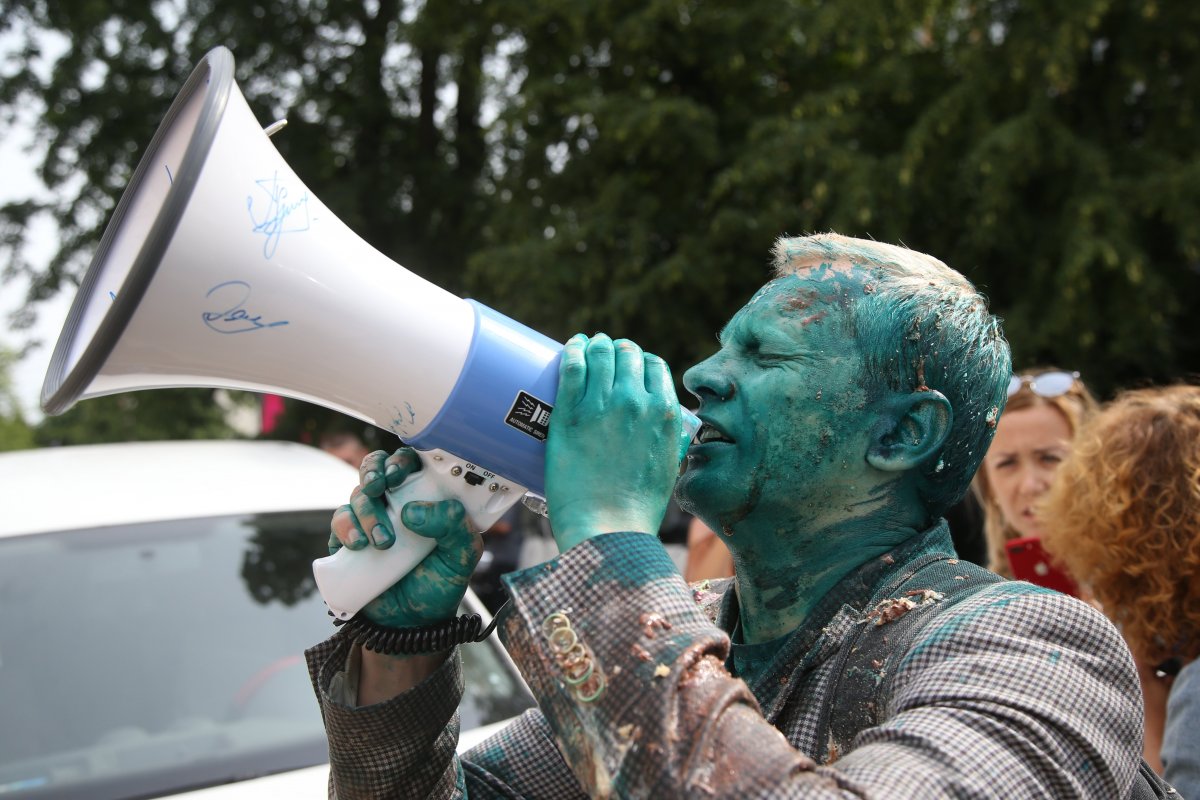
Vitaliy Shabunin, head of the Anti-Corruption Action Center’s executive board, speaks through a loudspeaker during the rally against Anti-Corruption Prosecutor Nazar Kholodnytsky in Kyiv on July 17. Defenders of Kholodnytsky attacked him, throwing cakes and a bottle of a brilliant green antiseptic. (UNIAN)
